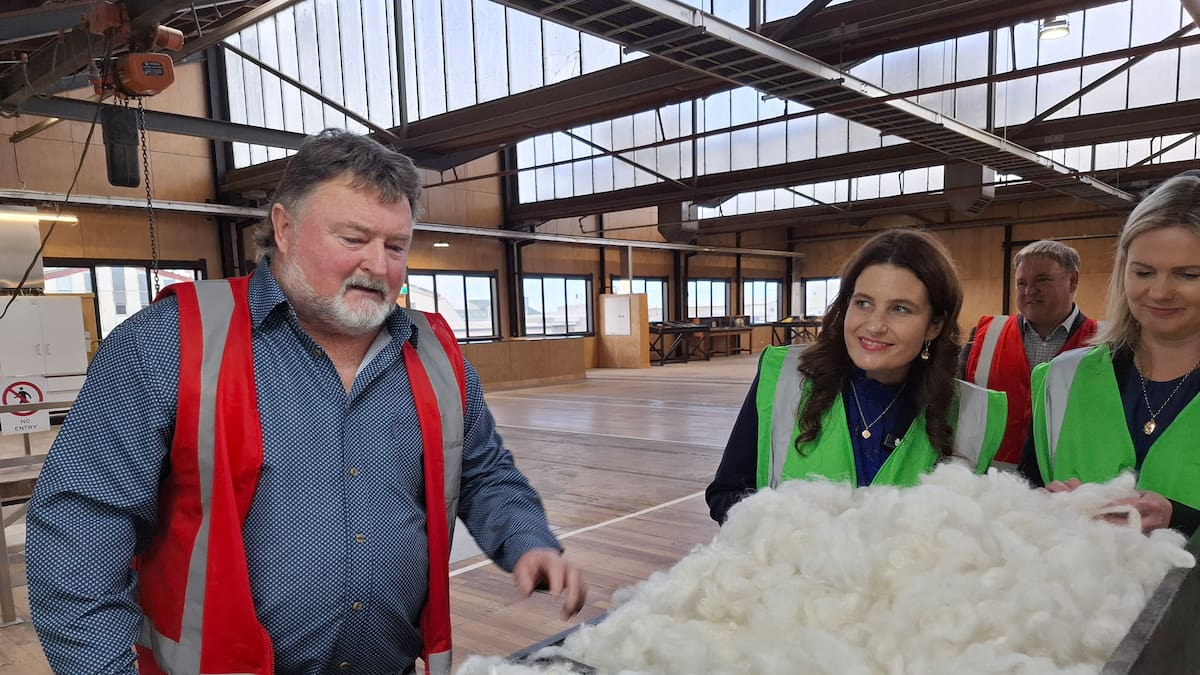New Zealand's Wool Industry: Finance Minister Sees 'Huge Growth Potential' Amid Challenges

Hawke's Bay, New Zealand – In a recent visit to New Zealand's largest wool scouring plant, Finance Minister Nicola Willis expressed optimism about the future of the nation’s wool industry, acknowledging both the existing challenges and the significant growth opportunities it holds. The visit provided Willis with a firsthand look at the complexities of wool processing and the dedication of those working within the sector.
“There’s huge growth potential in the wool industry, and I’m very hopeful for the sector,” Willis stated following the tour. Her comments come at a crucial time for the industry, which has faced economic headwinds and declining global demand in recent years. While historically a cornerstone of the New Zealand economy, the wool sector has struggled to maintain its prominence amidst shifting market dynamics.
The visit to the scouring plant highlighted the intricate processes involved in preparing wool for export and manufacturing. Scouring is the critical initial step, removing impurities and grease from raw wool. Seeing this process firsthand allowed the Finance Minister to gain a deeper understanding of the operational challenges and necessary investments required for a thriving wool industry.
Addressing the Challenges: A Multi-faceted Approach
Willis acknowledged the difficulties facing wool growers and processors, including fluctuating prices, increased competition from synthetic materials, and the need for innovation in product development. She emphasized the importance of a collaborative approach, involving government, industry stakeholders, and researchers.
“We need to look at the whole value chain, from the farm gate to the international market,” she explained. “That means supporting research and development into new wool products, promoting sustainable farming practices, and exploring new markets for New Zealand wool.”
Opportunities for Growth: Innovation and Sustainability
Despite the challenges, Willis pointed to several promising avenues for growth. The increasing global awareness of sustainability and ethical sourcing is creating demand for natural, renewable materials like wool. New Zealand wool’s reputation for quality and traceability gives it a competitive advantage in this market.
Innovation is also key. Researchers are exploring new uses for wool, including in construction materials, medical textiles, and high-performance apparel. Developing these innovative products and applications can unlock new markets and increase the value of New Zealand wool.
Government Support and Future Initiatives
The Finance Minister indicated that the government is committed to supporting the wool industry through various initiatives, including funding for research and development, promoting export opportunities, and streamlining regulations. Specific details of these initiatives are expected to be announced in the coming months.
“This is not just about supporting an industry; it’s about supporting rural communities and preserving a vital part of New Zealand’s heritage,” Willis concluded. The visit to the scouring plant served as a reminder of the importance of the wool industry and the potential for a revitalized future.
The sector's future hinges on adapting to changing consumer preferences, embracing sustainable practices, and leveraging New Zealand's reputation for producing high-quality wool. With the right support and innovation, the industry can once again thrive and contribute significantly to the national economy.






